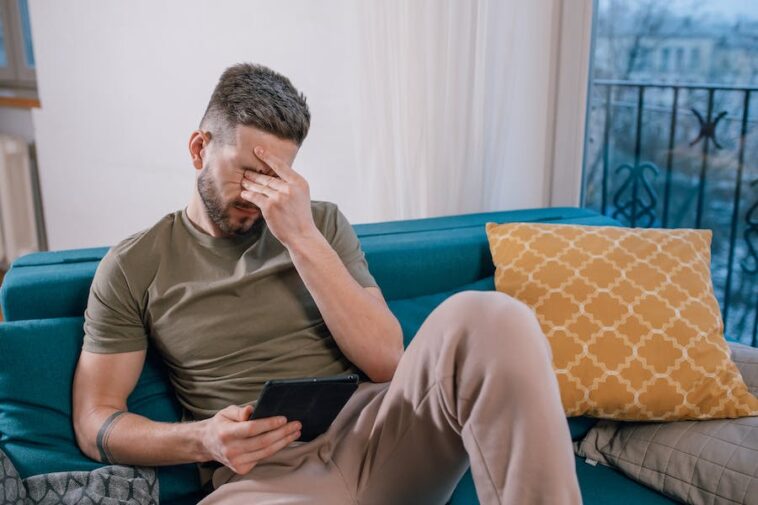Anxiety is one of the most common mental disorders. It permeates different areas of life of millions of people around the world, and its manifestations range from overpowering worries and fears to panic attacks. Depending on the severity or frequency of symptoms, anxiety disorders can hamper the ability to lead a fulfilling life.
Different treatments can help regain control over anxiety and foster a sense of tranquility. Below, let’s explore different types of anxiety disorders and how they can be managed using medications, psychotherapy, and lifestyle changes.
Common Symptoms Of Anxiety
Knowing the typical signs of anxiety allows for early detection and receiving the appropriate care. The signs indicating the need to see a healthcare provider and get assessed for an anxiety disorder include the following:

- Excessive worry
- Restlessness
- Fatigue and sleep issues
- Racing thoughts
- Avoidance behavior
- Panic attacks
- Difficulty making decisions
- Excessive self-consciousness
- Physical tension, discomfort, and gastrointestinal issues
Types Of Anxiety Disorders
There are several types of anxiety disorders, each being characterized by similar and unique symptoms. These conditions may manifest both psychologically and physically, and their effects may vary among individuals.
- Generalized anxiety disorder (GAD) entails persistent worry and physical tension.
- Panic disorder features sudden intense panic attacks.
- Social anxiety disorder involves a fear of social judgment.
- Specific phobias provoke intense fear of particular objects or situations.
- Obsessive-compulsive disorder (OCD) manifests through intrusive thoughts and repetitive behaviors.
- Post-traumatic stress disorder (PTSD) arises from exposure to trauma, leading to flashbacks and severe anxiety.
- Separation anxiety disorder involves an excessive fear of separation.
- Selective mutism is characterized by an inability to speak in specific social contexts.
Using science-backed tests and guidelines, a healthcare professional can make a diagnosis and help you navigate through the complexities of anxiety disorders. You don’t need to wait for weeks to visit a traditional clinic because you can see a qualified online anxiety specialist from home.
How To Treat Anxiety?
Anxiety treatment typically involves a combination of approaches, such as psychotherapy and medications. Patients may also receive recommendations on lifestyle changes that help maintain positive results in the long run. The treatment plan for every person is tailored to their specific symptoms and other needs and life circumstances.
Psychotherapy
The most popular method for anxiety management is psychotherapy. Different approaches are effective in addressing these conditions, including:
- Cognitive-behavioral therapy (CBT): CBT is among the most thoroughly researched and effective anxiety treatments. It focuses on helping to identify and reframe negative assumptions and cognitive patterns that cause anxiety.
- Exposure therapy: A therapist progressively exposes individuals to anxiety-inducing situations in a secure manner, so they can confront their concerns and learn to reduce anxious reactions over time.
- Acceptance and commitment therapy (ACT): ACT teaches people to embrace difficult thoughts and feelings without trying to hide or avoid them. This approach encourages a more flexible and adaptive reaction to anxiety.
- Dialectical behavior therapy (DBT): DBT, initially created for people with borderline personality disorder, has also been beneficial for anxiety. It emphasizes emotion control, coping with anxiety, and interpersonal effectiveness.
- Mindfulness-based therapies: Individuals can learn to build present-moment awareness and lessen anxiety by breaking the cycle of concern with the aid of mindfulness-based techniques like Mindfulness-based stress reduction (MBSR) and Mindfulness-based cognitive therapy (MBCT).
- Psychodynamic therapy: The technique investigates the potential impact of unconscious thoughts and prior experiences on anxiety. People can create healthy coping mechanisms by understanding the underlying causes of anxiety.
Medications
Medications can play a significant role in the treatment of chronic anxiety disorders. Healthcare professionals may recommend a variety of medicine types, taking your unique circumstances into account. Here are a few typical forms of medications for treating severe anxiety:
- Selective serotonin reuptake inhibitors (SSRIs): SSRIs increase serotonin levels, which is a neurotransmitter that helps regulate emotions and mood. Common SSRIs used for anxiety include sertraline (Zoloft), fluoxetine (Prozac), and escitalopram (Lexapro).
- Serotonin-norepinephrine reuptake Inhibitors (SNRIs): SNRIs not only raise serotonin levels but also have an impact on norepinephrine, another neurotransmitter that is important in mood regulation. Examples include duloxetine (Cymbalta) and venlafaxine (Effexor).
- Benzodiazepines: Benzodiazepines are known for their tendency to provide relief from acute anxiety symptoms. They enhance the effects of gamma-aminobutyric acid (GABA), a neurotransmitter that has a calming effect on the brain. However, benzodiazepines can be habit-forming and have a risk for dependence and therefore are usually prescribed for short-term treatment. Examples include alprazolam (Xanax), lorazepam (Ativan), and clonazepam (Klonopin).
- Buspirone: Buspirone targets serotonin and dopamine in the brain and has a lower risk of dependency, compared to benzodiazepines. It is commonly prescribed for generalized anxiety disorder.
- Beta-blockers: While not primarily intended for anxiety, beta-blockers are sometimes prescribed to manage physical symptoms of anxiety, such as rapid heartbeat. They work by blocking the effects of adrenaline and can be helpful for situational anxiety, such as performance anxiety.
Lifestyle Changes
In addition to medical treatment options, every person with anxiety can incorporate simple behavioral changes and natural remedies to lessen symptoms. These include:
- Regular exercise: Regular physical activity can help alleviate stress and anxiety. During exercise, the body releases endorphins, natural chemicals that have uplifting effects.
- Healthy diet: For a healthy lifestyle, maintain a balanced diet full of fruits, vegetables, whole grains, and lean proteins.
- Practice mindfulness and meditation: Mindfulness techniques can help to calm the mind and lessen anxiety. These include deep breathing exercises, meditation, and progressive muscle relaxation.
- Limit drugs and alcohol: Avoid using recreational drugs and alcohol as they may temporarily ease your anxiety but ultimately make it worse.
- Get enough sleep: Make sure you get enough restorative sleep each night. Not getting enough sleep can make anxiety symptoms worse.
- Establish a routine: Routines can help reduce anxiety by giving you a sense of security and structure.
- Social support: Maintain relationships with loved ones, friends, and support groups. Speaking with people about your thoughts and feelings can be reassuring and gratifying.
- Limit media exposure: Limit your exposure to upsetting news and social media posts that could set off or exacerbate anxiety.
- Aromatherapy: Smells like bergamot and lavender have relaxing properties. You can use essential oils either in a diffuser or by applying them topically (after diluting with a carrier oil).
- Pet therapy: Spending time with pets or other animals has been proven to help some people feel less stressed and anxious.
- Limit your exposure to stressors: Determine the causes of stress in your life and attempt to reduce or manage them.
Final Thoughts
The journey to recovery is different for every person, and the best treatment strategy for anxiety may also differ for every patient. If you experience anxiety, it’s recommended to seek professional assistance. Healthcare specialists can offer personalized advice and set treatment goals for anxiety based on your individual requirements and situation.





